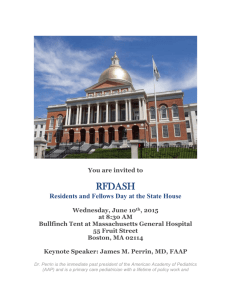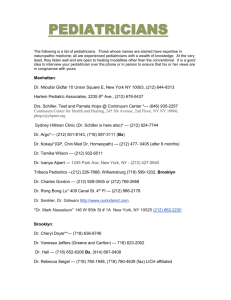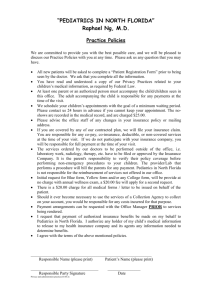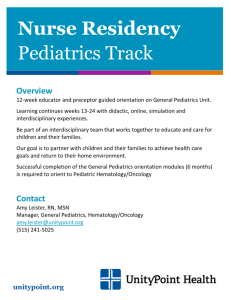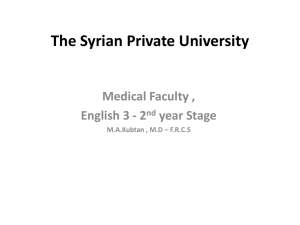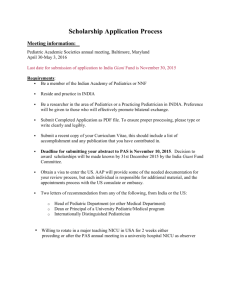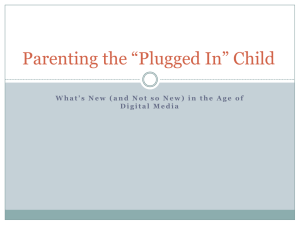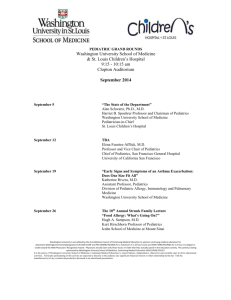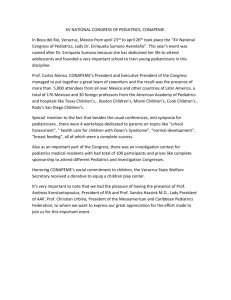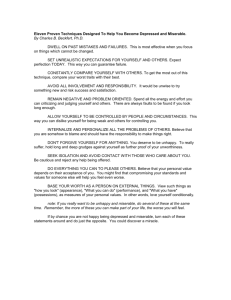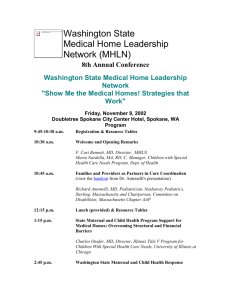"One hundred years from now, it will not matter what my bank
advertisement
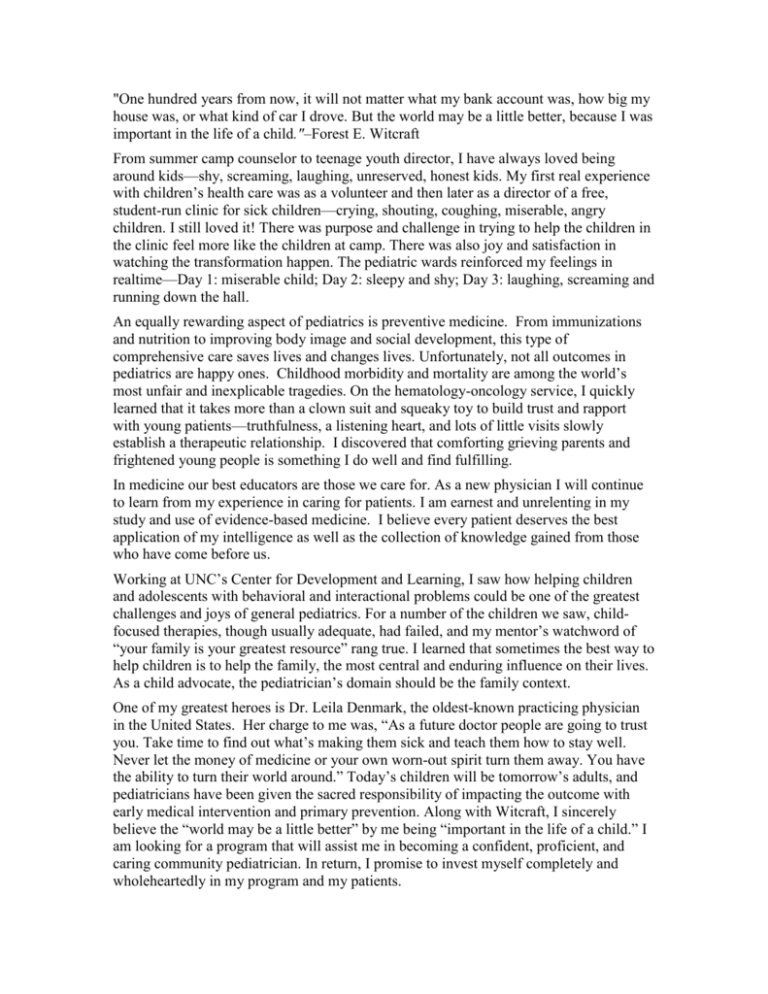
"One hundred years from now, it will not matter what my bank account was, how big my house was, or what kind of car I drove. But the world may be a little better, because I was important in the life of a child."–Forest E. Witcraft From summer camp counselor to teenage youth director, I have always loved being around kids—shy, screaming, laughing, unreserved, honest kids. My first real experience with children’s health care was as a volunteer and then later as a director of a free, student-run clinic for sick children—crying, shouting, coughing, miserable, angry children. I still loved it! There was purpose and challenge in trying to help the children in the clinic feel more like the children at camp. There was also joy and satisfaction in watching the transformation happen. The pediatric wards reinforced my feelings in realtime—Day 1: miserable child; Day 2: sleepy and shy; Day 3: laughing, screaming and running down the hall. An equally rewarding aspect of pediatrics is preventive medicine. From immunizations and nutrition to improving body image and social development, this type of comprehensive care saves lives and changes lives. Unfortunately, not all outcomes in pediatrics are happy ones. Childhood morbidity and mortality are among the world’s most unfair and inexplicable tragedies. On the hematology-oncology service, I quickly learned that it takes more than a clown suit and squeaky toy to build trust and rapport with young patients—truthfulness, a listening heart, and lots of little visits slowly establish a therapeutic relationship. I discovered that comforting grieving parents and frightened young people is something I do well and find fulfilling. In medicine our best educators are those we care for. As a new physician I will continue to learn from my experience in caring for patients. I am earnest and unrelenting in my study and use of evidence-based medicine. I believe every patient deserves the best application of my intelligence as well as the collection of knowledge gained from those who have come before us. Working at UNC’s Center for Development and Learning, I saw how helping children and adolescents with behavioral and interactional problems could be one of the greatest challenges and joys of general pediatrics. For a number of the children we saw, childfocused therapies, though usually adequate, had failed, and my mentor’s watchword of “your family is your greatest resource” rang true. I learned that sometimes the best way to help children is to help the family, the most central and enduring influence on their lives. As a child advocate, the pediatrician’s domain should be the family context. One of my greatest heroes is Dr. Leila Denmark, the oldest-known practicing physician in the United States. Her charge to me was, “As a future doctor people are going to trust you. Take time to find out what’s making them sick and teach them how to stay well. Never let the money of medicine or your own worn-out spirit turn them away. You have the ability to turn their world around.” Today’s children will be tomorrow’s adults, and pediatricians have been given the sacred responsibility of impacting the outcome with early medical intervention and primary prevention. Along with Witcraft, I sincerely believe the “world may be a little better” by me being “important in the life of a child.” I am looking for a program that will assist me in becoming a confident, proficient, and caring community pediatrician. In return, I promise to invest myself completely and wholeheartedly in my program and my patients.
